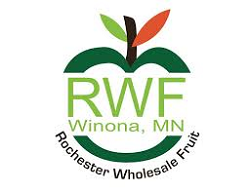Produce people come from all walks of life.
I’ve run into a produce manager who started out as a carpenter, and I know a produce VP who spent his early years playing professional baseball in South America. Some produce folks hold a bachelor’s or an advanced degree. One produce director I know started as a part-timer while going to college, intent on being a biologist. He never left produce.
On the other hand, numerous successful people in the industry have only attended the ever-popular “School of Hard Knocks” — no degree at all, and yet, they’ve thrived.
That’s been part of an informal Q&A session I’ve had with produce professionals over the years, both young and not so young: Should I return to school and finish my degree? Is it worth the time, the money? In an age of skyrocketing school loans, and some questionable degree programs, it’s a tough call, especially for those older than 40 looking for a career change.
I’m contemplating this topic as we venture into May, the traditional month for graduations. Imagine, graduates gathered in spring settings, excited, cheerful and optimistic, looking like judges in their black, silky robes. They listen to the professors and the deans, the multisashed few, pontificating on how the graduates are the promise and hope for tomorrow. The long-winded speeches.
As one who returned to college in my late 40s, graduation day was memorable.
I don’t advocate the same for everyone. In retrospect, I’m not sure that my late-night, old-man college program made me any smarter. And deep down I believe it’s more important that, as President Calvin Coolidge professed, “Nothing in the world can take the place of persistence.” Yet, I enrolled anyway.
I lost sleep due to evening classes and group study sessions. I ate lunch at my buying desk, reading textbooks. I burned vacation days so I could catch up on projects or when I had a particularly challenging course. I was motivated because my produce career options were limited.
With some paths, it doesn’t matter how many boxes a person hoists, how much experience gained, how well read you are or how many middle-management positions you’ve held; if you can’t put a checkmark in the college degree box on an application form, you won’t stand out. Some organizations simply won’t consider you a candidate.
What going back to grind out the degree did accomplish, however, was proving to myself that it could be done. I applied the real-life discipline acquired over years in produce to the business degree program: knowing how to organize things and knowing how to set my time and list my priorities. I was nervous when speaking in front of groups but worked to overcome it, setting goals, seeing things through and more.
Related: More insight from Armand Lobato
Up to that point I didn’t know much about statistics, human resources, business law, or critical thinking, but I pushed through those courses one at a time. Deep down I had confidence, and being around applicable concepts through the years helped, but afterward it was cool to apply concepts gained from school to my, um, day job.
As the nights, months and years wore on, I was especially rewarded for getting to know a whole new group of amazing people: my teachers and fellow students. Just like in our produce world, mentors and relationships are gold.
As graduation inched closer, we touched upon Maslow’s Hierarchy during a psychology course. You’ve likely seen this one. It’s the pyramid with basic human needs like food, water and shelter at the bottom tier, and each ascending level lists elevated life needs and rewards. The tip of the pyramid? Self-actualization. That’s the term for when a person has arrived at an elevated point — the milestones in life, such as when a newly promoted produce manager writes his or her very first order, labor schedule or budget; when a produce supervisor puts the car in gear for their first store visit or embarks on their first grower tour; or when a produce director is alone with their thoughts as they write their first-ever marketing bulletin.
In education, the self-actualization moment hits when you walk at graduation while the “Pomp and Circumstance”music is playing. You take those few steps across the stage and wave in the direction of family and friends, who whistle and cheer in the distance, who have supported your decision to forge ahead to whatever awaits.
Emotions in that moment, after all that time and work, are hard to keep in check.
Afterward, the crowd thins out and reality sets in. Life awaits and job opportunities come and go. Some require the degree checkmark. Others do not. There will be moments that you second-guess the risk-reward equation, whether the degree was worth the time, expense and commitment. Was it worth it? To me, it’s a resounding yes.
I remember one simple yet eloquent point of a brief graduation speech given by a fellow graduate, a middle-aged working mom who had just earned an advanced degree.
She said, “The truly educated never stop learning.” This applies to life, to career paths, and yes, even to the humble produce aisle.
Armand Lobato works for the Idaho Potato Commission. His 40 years of experience in the produce business span a range of foodservice and retail positions.














